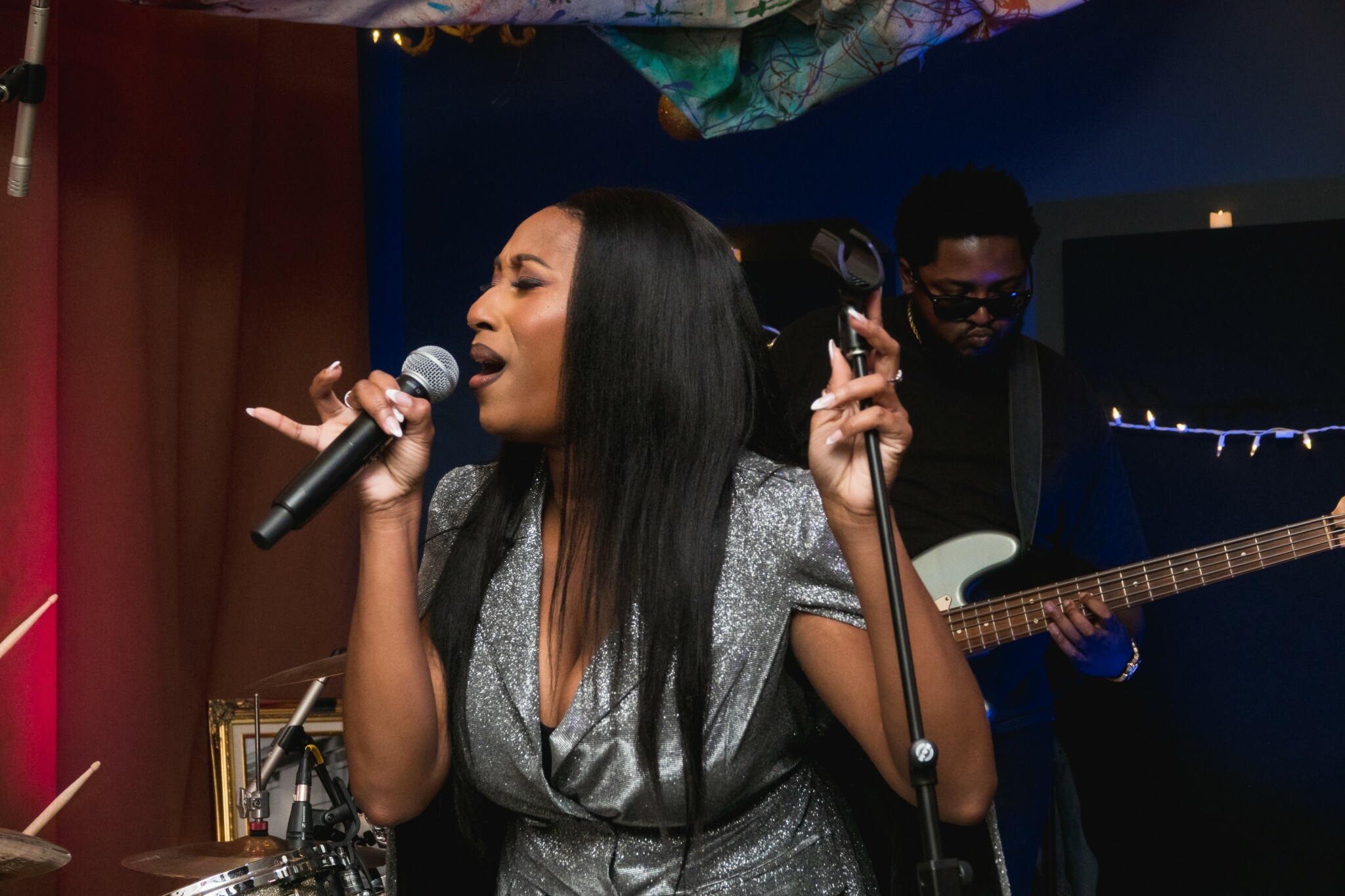Alright – so today we’ve got the honor of introducing you to Dalona Jones. We think you’ll enjoy our conversation, we’ve shared it below.
Dalona, looking forward to hearing all of your stories today. We’d love to hear about when you first realized that you wanted to pursue a creative path professionally.
I know many singers say this, but I have been singing for as long as I can remember. Coming from a musically inclined family, music was an integral part of my upbringing and environment. Watching my mother sing in church, and the way she made people feel with her voice was what did it for me. I remember being a bright-eyed little girl with my American Doll-like Sunday dress and shiny shoes thinking to myself “That’s what I want to do with my life, I want to make people feel something.”
However, I was only shy when it came to music and singing. Even from a young age, I possessed a certain maturity to my voice, often mimicking Gospel greats like The Clark Sisters and Yolanda Adams, in the way in which they would riff and hold long notes with stamina and vibrato. I grew up in a large, multigenerational house with my younger cousins, grandparents, mother, uncles, and aunties. There’s a cultural standard in Black households where you must come of age to enter the refrigerator without permission. I’ll never forget I went into the refrigerator after a long day of play with my little cousins and began singing a church hymn while I browsed for what I wanted. Unbeknownst to me my grandfather, the late Bishop Floyd Flippin, was watching and listening from around the corner, careful not to startle me and stop what he was hearing. Once I noticed him, I was only scared that he would rat me out for being in the refrigerator, but no, with a grin on his face he glared back at me and said “Girl, I didn’t know you could sing like that! You’re going to sing in church more now.”
Although I had (and still have) terrible stage fright at times, that was a pivotal moment for me. I was too young to conceptualize or articulate the feelings I felt about music and singing. I just knew that it was a burning passion that I couldn’t escape, and it was people like my mother, grandparents, and church members who didn’t allow me to abandon that passion or run away from it.
As I got older I became more cynical about pursuing music. It never seemed like the “right” time as I worked my way through college and then on to graduate studies. Although I don’t regret it, I convinced myself that a more traditional pathway would earn me the financial security that I didn’t have growing up. The cognitive dissonance it required for me to abandon any hopes or dreams of pursuing music or even cultivating my talent as an artist was overwhelming. There were days I couldn’t focus on work or homework, all I wanted to do was write and finish a song. All I wanted to do was be in a room with other creatives. All I wanted to do was sing and hear back what notes my soul told my lungs to create. I permitted myself to feel this when I started writing for my first EP, “Burning Journals” in 2023 at 26 years old. And the rest is history.
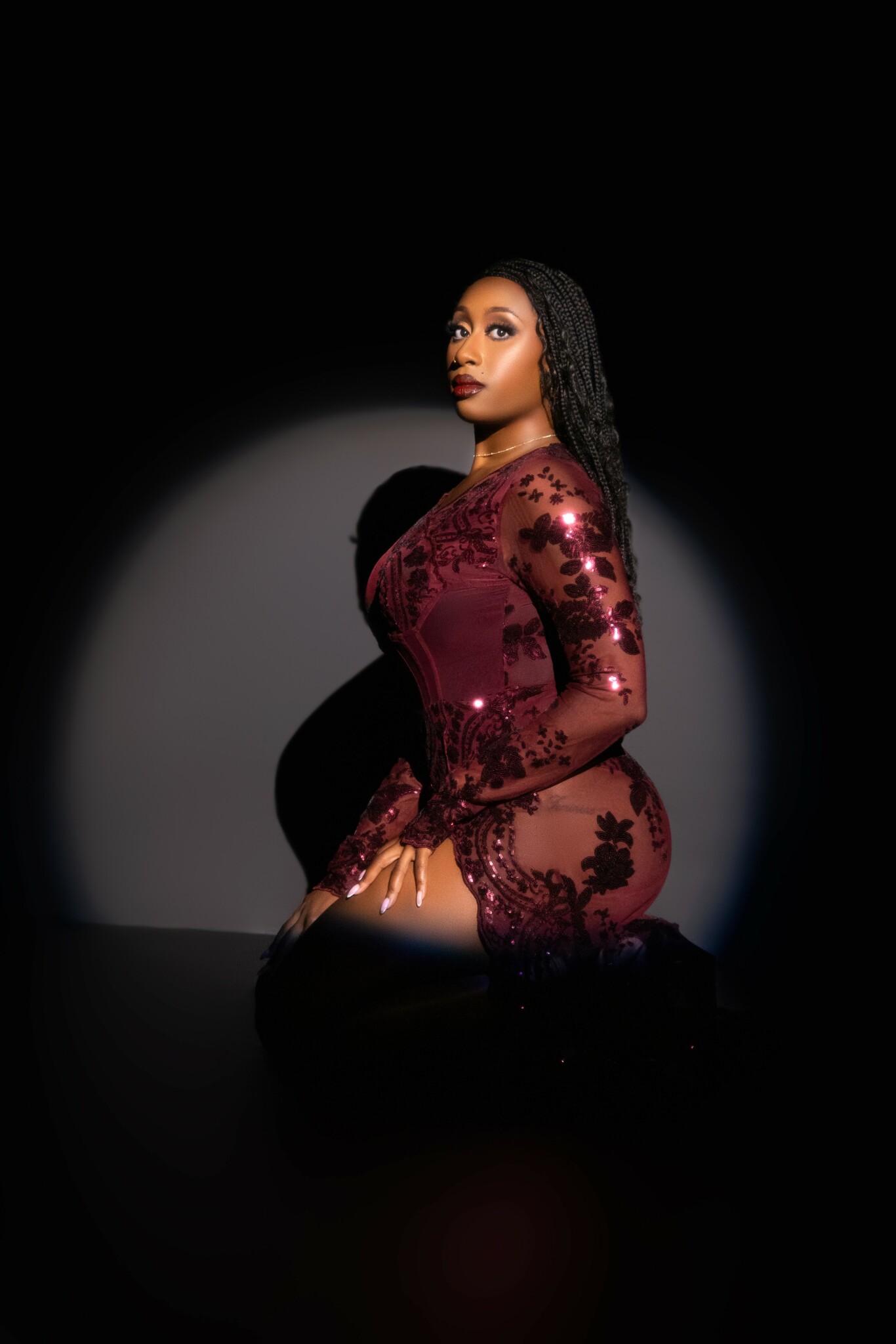
Great, appreciate you sharing that with us. Before we ask you to share more of your insights, can you take a moment to introduce yourself and how you got to where you are today to our readers.
Who I Am:
Nashville-born, Grand Rapids, MI-raised singer-songwriter blending R&B, Soul, and elements of Pop. I’m known for my lower vocal register, introspective storytelling, and emotionally charged songwriting. I began singing in my late grandfather’s church choir, heavily influenced by my mother, a Gospel singer.
How I Got into Music:
I had early exposure to music through family and church and I began songwriting as a form of self-expression and self-discovery. I transitioned from singing in church to crafting my artistry, leading to the release of my debut EP, “Burning Journals”, and then my sophomore EP, “Love & Delusion.”
Creative Works & Offerings:
I released “Burning Journals”, a deeply personal project exploring self-reflection. My sophomore EP, Love & Delusion, released on January 3, 2025, is a concept album navigating themes of love, heartbreak, and self-discovery. With each release, I’ve become stronger in my evolving identity as an artist, and excited to see where that innovation takes my sound and career. My work extends beyond just music—through lyricism and storytelling, I create a space for listeners to process their own emotions and experiences. I also love collaborating with other artists in the songwriting or production phase, which is a natural plus living in Nashville.
What Sets Me Apart:
I believe that what sets me apart is my authentic storytelling and vulnerability. The irony is that I’m pretty private about my personal life outside of my music. While I love occupying a space in music that is fun and makes you want to dance or vibe out, I’m a sucker for making records that facilitate deep emotional introspection; allowing listeners to see their own lives reflected in my music. I embrace vulnerability in my lyrics, addressing personal and universal themes with raw honesty. I want to be known for my genre-bending sound as well and am excited to continue exploring the depths of what it can sound like to blend R&B with other eras of music. Inspired by artists like YEBBA, Jazmine Sullivan, and Brandy, I continuously evolve my sound to carve out my own space in the industry. My music is more than just entertainment—it fosters connection, healing, and empowerment. I view my audience as part of my journey and strive to create a space where they feel seen and heard.
Growth from Burning Journals to Love & Delusion:
Love & Delusion represents an artistic evolution—more refined, intentional, and emotionally raw. I pushed myself creatively and emotionally to produce a body of work that resonates as deeply with my listeners as it did with me when I wrote it. I’ve been lucky to secure sponsorships and live show opportunities, including collaborations with brands like Guidance Whiskey. Although I’ve struggled with stage fright and social anxiety while on stage. performing live allows me to connect with my audience uniquely and intimately and I’ve learned how to step out of my body and into my heart when performing live. Fans can expect new singles throughout 2025, leading up to a full album.
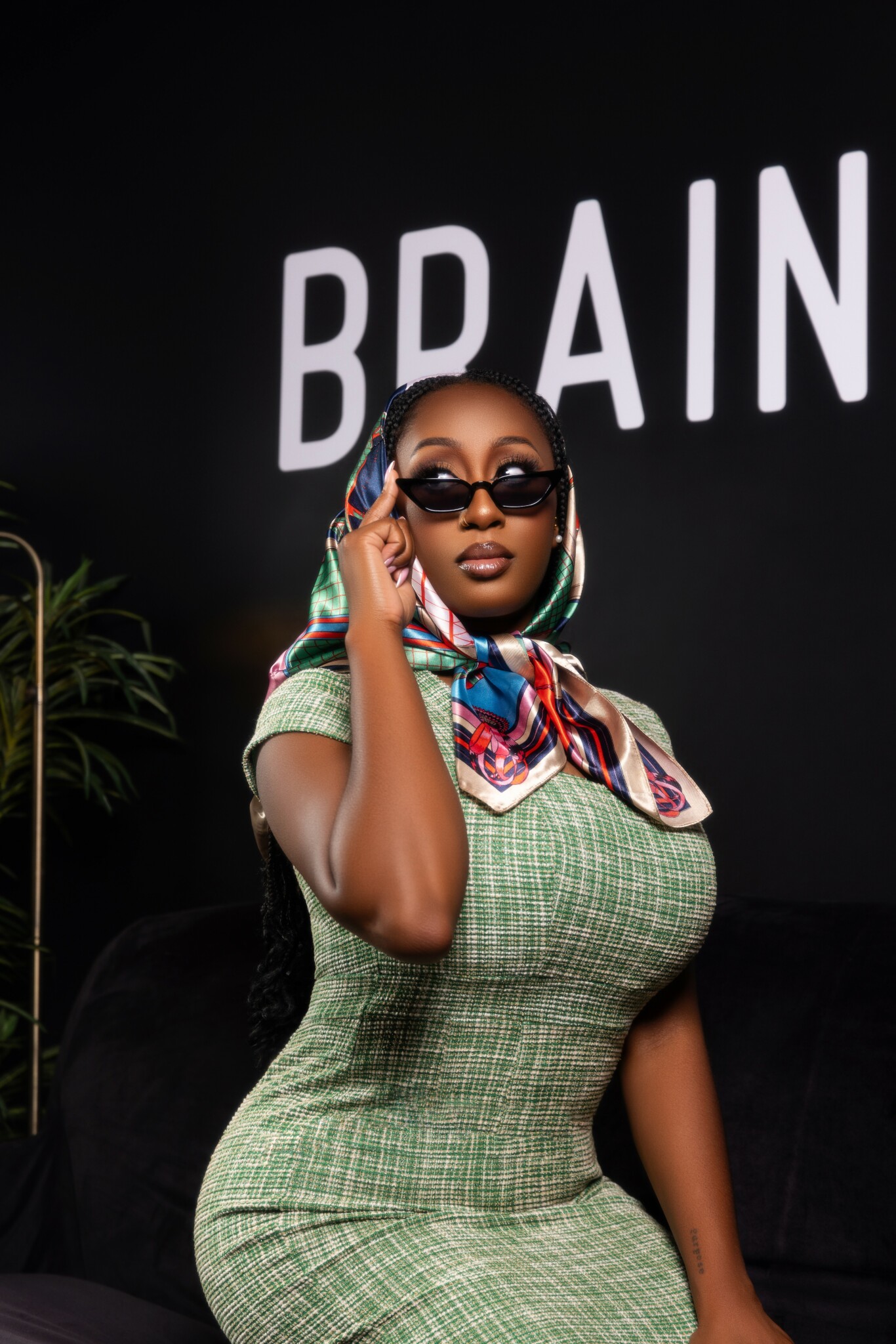
Learning and unlearning are both critical parts of growth – can you share a story of a time when you had to unlearn a lesson?
One of the biggest lessons I had to unlearn as a new artist is that your goal as a creative is to create art that you think everyone else will want to consume. One of the biggest barriers for me as someone who knew I was a great songwriter but could never finish a song was that I was writing from the perspective of what I thought others, the world, the radio, and social media wanted me to write about. I had no clue how powerful vulnerability and personal introspection were in writing. When I started to write directly or even adjacently about my experiences, my life, or even the fantasy worlds I created in my mind, that was 100% more relatable and created a direct pathway to my fans and supporters.
While I appreciate vocal range, acrobatics, and classically trained singers just as much as the next artist, I learned that it’s okay to know your strengths and capitalize on them. I’ve never been a “belter” as a singer. I have the range for it, but it’s just not my style and that’s okay. I learned that everyone is going to have an opinion on what you could have done better from one song to another, but as long as you’ve given it your best and you’re proud of it….own that. That’s your unique blueprint and sound as an artist and no one’s critique or opinion can take that away from you.
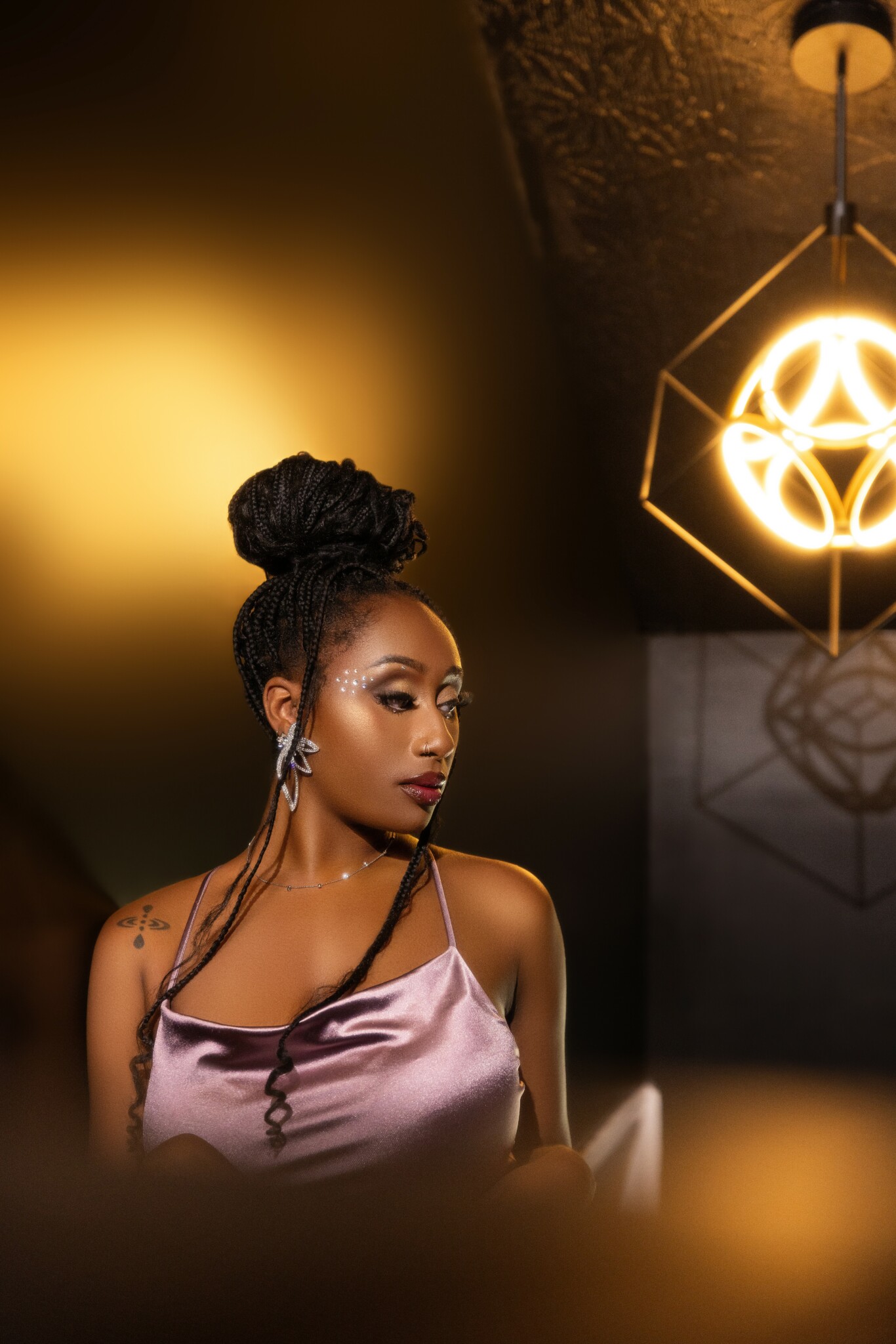
In your view, what can society to do to best support artists, creatives and a thriving creative ecosystem?
As a newer singer-songwriter navigating the music industry, I’ve realized that talent and passion alone aren’t enough—there has to be real structural support for artists to thrive. Society loves and consumes art constantly, yet many creatives, especially independent artists, struggle to receive fair compensation and sustainable opportunities. If we want a thriving creative ecosystem, we need to address the systems that undervalue artists while ensuring that creativity is treated as a profession, not just a passion.
One of the biggest issues facing artists today is unfair compensation. Streaming services, for example, have revolutionized music distribution, but they’ve also made it harder for musicians to earn a living. Platforms like Spotify pay artists fractions of a penny per stream, making it nearly impossible for independent musicians to sustain themselves without touring, merch sales, or side hustles. There have been ongoing conversations about equitable streaming payouts, and I believe society—including fans, policymakers, and tech companies—needs to demand more transparency and fairer payment structures for artists. Additionally, venues and event organizers should prioritize paying artists fairly for live performances. Too often, artists are expected to perform for “exposure” rather than compensation. Exposure doesn’t pay rent, and the idea that artists should just be grateful for a platform undervalues the work we put in.
Another crucial step is ensuring that songwriters, producers, and musicians retain rights to their work. We’ve seen major industry lawsuits where artists have had to fight for ownership of their masters—Taylor Swift’s battle to reclaim her music is a high-profile example, but smaller, independent artists face similar struggles regularly. Stronger legal protections for creatives, especially in contracts with labels, publishers, and streaming platforms, would help prevent exploitation and empower artists to control their work. Many countries invest in the arts through government grants and funding, but the U.S. lacks widespread public funding for independent musicians. Cities and local governments could do more by providing grants, low-cost rehearsal spaces, and financial resources to emerging artists. Public and private organizations could also offer more residency programs and grants to help artists create without the constant financial strain.
Fans and everyday listeners also play a huge role in supporting a thriving creative ecosystem. Instead of just streaming music, purchasing directly from artists—whether it’s vinyl, merch, or tickets to a show—helps musicians earn a sustainable income. Attending live performances, engaging with artists on social media, and spreading the word about independent musicians all contribute to keeping the creative economy alive. At the end of the day, art shapes culture, and society needs to recognize that creatives deserve the same respect, financial security, and professional protection as any other industry. If we want a future where music and the arts continue to thrive, we have to invest in the people creating it.
Contact Info:
- Website: https://dalonasings.com
- Instagram: duhlahnuh
- Youtube: https://youtube.com/dalonasings
- Other: TikTok: duhlahnuh

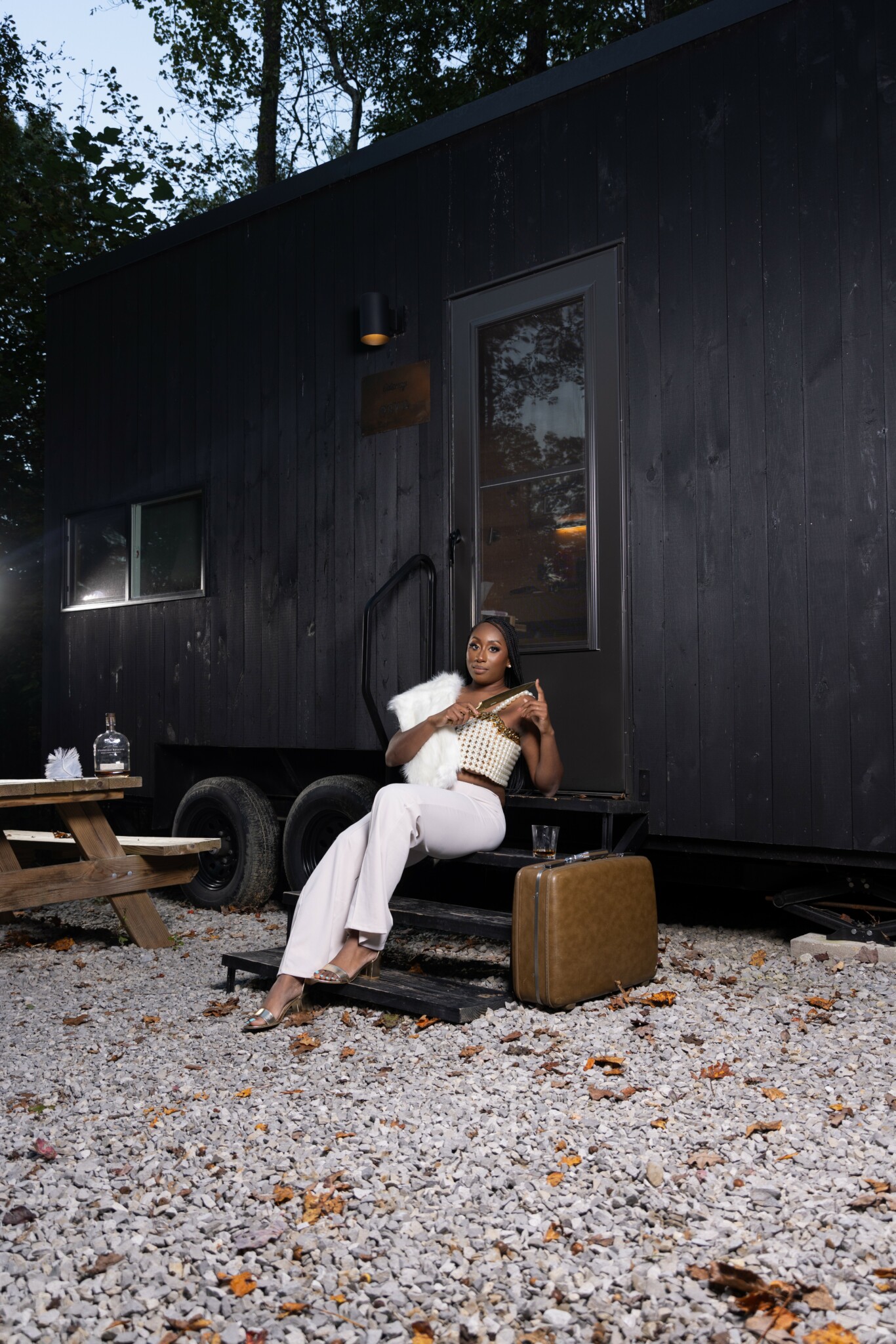

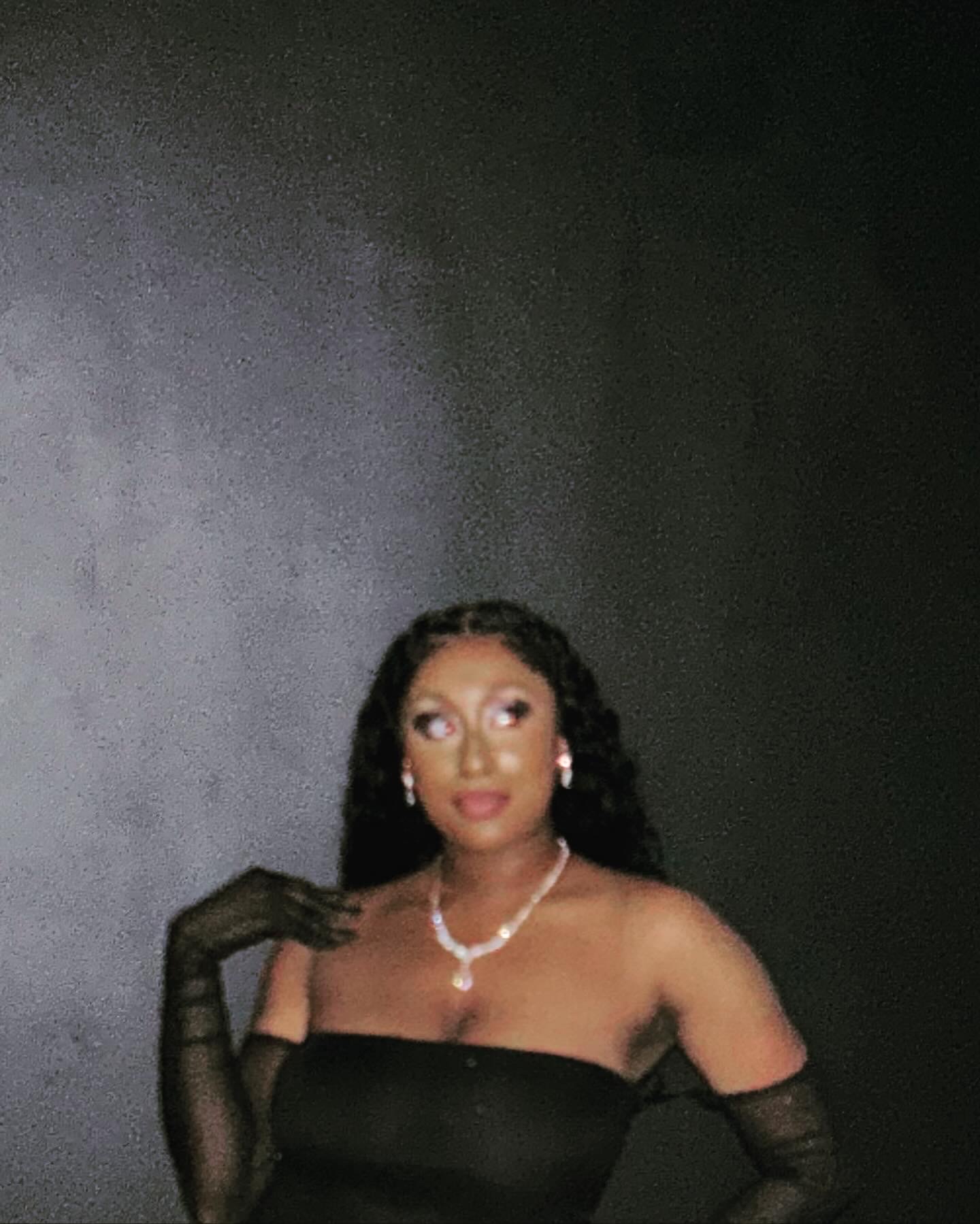
Image Credits
Moise Nicols
Briana Hawkins
^^”Demi Rebel”


